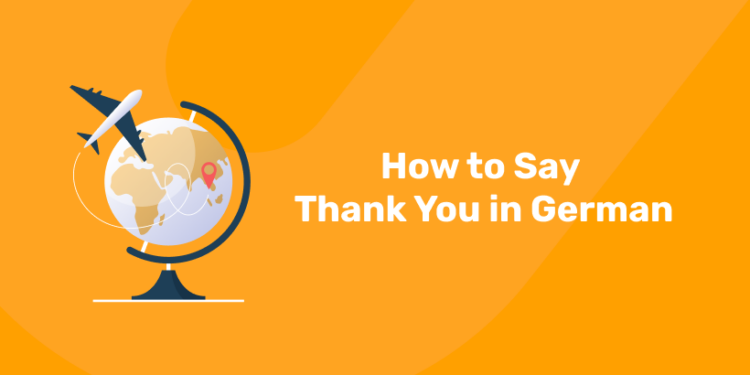Table of Contents
Learning a new language is fun and expressing gratitude is part of it. When learning German one of the first things you’ll want to know is how to say thank you. Whether you’re traveling through Germany, Austria or Switzerland or just communicating with German speaking colleagues or friends, being able to say thank you will come in handy. In this post we’ll look at how to say thank you in German, formal alternatives, how to respond and tips for German greetings.
Learn German language in your own language! Get free Demo Classes Here!
How to Say “Thank You” in German
Thank You
The most common and used phrase for thank you in German is:
Danke – Simple and straightforward, danke is the default thank you. Used in informal situations or casual conversations, just like we use “thanks” in English.
Vielen Dank – Means “many thanks” and is used when you want to emphasize your thanks. A bit stronger than just danke.
Danke schön – Another one, means “thank you kindly” or “thank you very much”. A bit more polite than danke, adds a nice touch of formality.
Tausend Dank – Means “a thousand thanks”, used to show great thanks. Not common in everyday conversations but makes a big impact when used.
Formal alternatives to say Thank You in German
In professional or formal situations you should know the more polite ways to say thank you in German. Here are some formal alternatives:
Ich danke Ihnen – The formal version of “I thank you”, used when speaking to someone you don’t know well or in professional situations. “Ihnen” is the formal “you” in German, so this is used when addressing superiors or strangers.
Herzlichen Dank – Means “heartfelt thanks”, used in formal and semi-formal situations. Conveys deep thanks and often used in professional communication.
Vielen herzlichen Dank – Even more formal, means “many heartfelt thanks”. Used when thanking someone in a formal email or letter.
Ich bin Ihnen sehr dankbar – Means “I am very grateful to you”. One of the most formal ways to express thanks and used in formal correspondence or professional situations.
Using these alternatives can help you maintain professionalism in formal situations, while still showing appreciation.
How to Respond to Thank You in German
1: How do you say "Good Morning" in German?
Saying thank you in German is only half the battle. Here are a few ways to respond:
Bitte – This is the most common and universal response, meaning you’re welcome or please. It’s short and sweet and can be used in almost any situation.
Bitte schön – Similar to danke schön, this is a bit more formal and means you’re very welcome.
Gern geschehen – This means gladly happened and is like saying my pleasure in English. A polite way to respond when someone thanks you for your help.
Kein Problem – A casual way to respond, meaning no problem. For informal situations.
Es war mir ein Vergnügen – Meaning it was my pleasure, this is a polite and slightly formal way to respond to someone’s thanks.
Responding with one of these phrases shows you appreciate their thanks and keeps the conversation going.
Free German A1 Mock Tests – Powered by AI!
Test your skills on our interactive platform. Get instant feedback from our AI to help you communicate better and track your progress. Start your free German mock test now.
Test Your German A1 for FreeGerman Greetings: Tips and Exercises
Saying thank you in German is just the start. Master greetings and expressions of gratitude to become conversationally fluent in German. Here’s a few tips:
1. Flashcards
Create flashcards with different ways to say thank you, formal alternatives and responses. Practice at your own pace.
2. Practice with Native Speakers
Talk to native German speakers in person or online and use different gratitude phrases. Real life practice is the best way to reinforce what you’ve learned.
3. Repeat in Real Life
When you’re in a real life situation where you can say thank you, take the opportunity to practice. Whether it’s at a restaurant, shop or with friends, use the German phrases you’ve learned to express thanks.
4. Listen
Watch German movies, TV shows or listen to podcasts and pay attention to how native speakers say thank you. Imitate their intonation and expressions to sound more natural when you speak.
5. Write it Out
If you’re having trouble with formal or written expressions of thanks, write a few practice thank-you notes in German. This will help you get comfortable with the structure and formality of the language.
Learn German language in your own language! Get free Demo Classes Here!
Conclusion
Learning how to say “thank you in German” is key to communication whether you’re a beginner or advanced learner. From casual to formal situations there are many ways to express gratitude and knowing the right phrase for each situation can make a big impact.
If you’re serious about learning German practicing gratitude phrases is a great start but there’s so much more to explore. Entri’s German course covers everything from basic greetings to advanced grammar. With expert teachers and interactive lessons you’ll be speaking German in no time. Get started now and take your German to the next level!
Free German A1 Mock Tests – Powered by AI!
Test your skills on our interactive platform. Get instant feedback from our AI to help you communicate better and track your progress. Start your free German mock test now.
Test Your German A1 for FreeFrequently Asked Questions
What is the most common way to say "thank you" in German?
The most common way to say “thank you” in German is “Danke.”
How do you say "thank you very much" in German?
You can say “thank you very much” as “Vielen Dank” or “Danke schön.”
What are some formal ways to say "thank you" in German?
Some formal ways include “Ich danke Ihnen” and “Herzlichen Dank.“
How do you respond to "thank you" in German?
Common responses include “Bitte,” “Gern geschehen,” and “Kein Problem.”
How can I practice saying "thank you" in German?
Practice using flashcards, conversing with native speakers, or writing thank-you notes in German. You can also take a structured course, like Entri’s German course.
What’s the difference between "Danke" and "Vielen Dank"?
“Danke” is a casual “thank you,” while “Vielen Dank” means “many thanks” and is more emphatic.
Is it important to use formal language when saying thank you in German?
Yes, in formal settings or professional environments, using formal language like “Ich danke Ihnen” is important.
Where can I learn more German phrases like "thank you"?
You can enroll in Entri’s German course for a comprehensive learning experience with interactive lessons.












